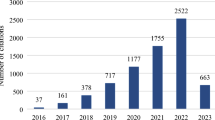Abstract
The widespread deployment of the advanced computer technology in business and industries has demanded the high standard on quality of service (QoS). For example, many Internet applications, i.e. online trading, e-commerce, and real-time databases, etc., execute in an unpredictable general-purpose environment but require performance guarantees. Failure to meet performance specifications may result in losing business or liability violations. As systems become distributed and complex, it has become a challenge for QoS design. The ability of on-line identification and auto-tuning of adaptive control systems has made the adaptive control theoretical design an attractive approach for QoS design. However, there is an inherent constraint in adaptive control systems, i.e. a conflict between asymptotically good control and asymptotically good on-line identification. This paper first identifies and analyzes the limitations of adaptive control for network QoS by extensive simulation studies. Secondly, as an approach to mitigate the limitations, we propose an adaptive dual control framework. By incorporating the existing uncertainty of on-line prediction into the control strategy and accelerating the parameter estimation process, the adaptive dual control framework optimizes the tradeoff between the control goal and the uncertainty, and demonstrates robust and cautious behavior. The experimental study shows that the adaptive dual control framework mitigate the limitations of the conventional adaptive control framework. Compared with the conventional adaptive control framework under the medium uncertainty, the adaptive dual control framework reduces the deviation from the desired hit-rate ratio from 40% to 13%.
Similar content being viewed by others
References
Abdelzaher, T.: An automated profiling subsystem for qos-aware services. In: IEEE Real-Time Technology and Applications Symposium, Washington, DC, June 2000
Abdelzaher, T., Shin, K., Bhatti, N.: Performance guarantees for web server end-systems: A control-theoretical approach. In: IEEE Transactions on Parallel and Distributed Systems, June 2001
Abdelzaher, T.F., Bhatti, N.: Web server QoS management by adaptive content delivery. In: International Workshop on Quality of Service, London, UK, June 1999
Astrom, K.J.: Theory and application of adaptive control—a survey. Autom. 19, 471–486 (1983)
Astrom, K.J., Wittenmark, B.: On self tuning regulators. Autom. 9, 185–199 (1973)
Astrom, K.J., Wittenmark, B.: Adaptive Control, 2nd edn. Addison Wesley, Boston (1995)
Christin, N., Liebeherr, J., Abdelzaher, T.F.: A quantitative assured forwarding service. In: IEEE Infocom, New York, NY, June 2002
Elliott, Direct adaptive pole placement with application to nonminimum phase systems. IEEE Trans. Autom. Control 27, 720–722 (1982)
Filatov, N.M., Unbehauen,H.: Adaptive dual control: theory and applications. In: Lecture Notes in Control and Information Sciences. Springer Verlag, Heidelberg (2004)
Karlsson, M., Karamanolis, C., Zhu, X.: Triage: performance isolation and differentiation for storage systems. In: International Workshop on Quality of Service (IWQoS), Montreal, Canada, June 2004
Kumar, P.R., Varaiya, P.: Stochastic Systems: Estimation, Identification and Adaptive Control. Prentice Hall, Englewood Cliffs (1986)
Lee, H.D., Nam, Y.J., Jung, K.J., Jung, S.G., Park, C.: Regulating I/O performance of shared storage with a control theoretical approach. In: Proceedings of the 21st IEEE Mass Storage Systems Symposium/12th NASA Goddard Conference on Mass Storage Systems and Technologies, April 2004
Li, B., Nahrstedt, K.: A control-based middleware framework for quality of service adaptations. IEEE J. Sel. Areas Commun. September 1999
Lu, Y., Sexana, A., Abdelzaher, T.: Differentiated caching services; a control-theoretical approach. In: Proceedings of the 2001 International Conference on Distributed Computing Systems, 2001, pp. 615–622
Lu, Y., Abdelzaher, T., Lu, C., Tao, G.: An adaptive control framework for QoS guarantees and its application to differentiated caching services. In: International Workshop on Quality of Service (IWQoS), Miami Beach, FL, May 2002, pp. 23–32
Skadron, K., Abdelzaher, T., Stan, M.: Control-theoretic techniques and thermal-RC modeling for accurate and localized dynamic thermal management. In: Proceedings of the Eighth International Symposium on High-Performance Computer Architecture, 2002, pp. 17–28
Wittenmark, B.: Adaptive dual control methods: an overview. In: 5th IFAC Symposium on Adaptive Systems in Control and Signal Processing, Budapest, Hungary, 1995, pp. 67–72
Wu, K., Lilja, D.J., Bai, H.: The applicability of adaptive control theory to QoS design: limitations and solutions. International Workshop on Performance Modeling, Evaluation, and Optimization of Parallel and Distributed Systems (PMEO-PDS), April 2005
Author information
Authors and Affiliations
Corresponding author
Rights and permissions
About this article
Cite this article
Wu, K., Lilja, D.J. & Bai, H. An adaptive dual control framework for QoS design. Cluster Comput 10, 217–228 (2007). https://doi.org/10.1007/s10586-007-0014-y
Published:
Issue Date:
DOI: https://doi.org/10.1007/s10586-007-0014-y




